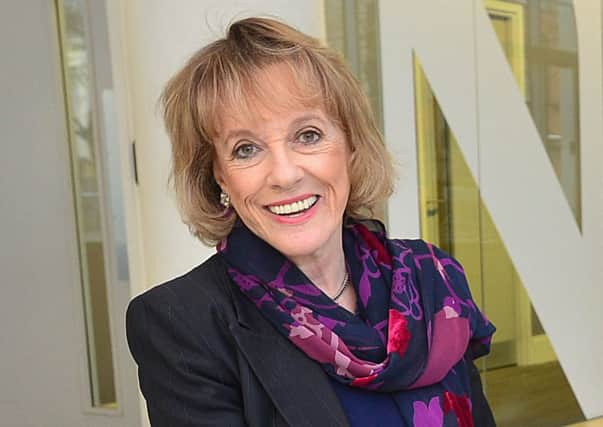Esther Rantzen interview: '˜I miss my funny and generous husband'


“What kind of a man was he? Well he was red haired, so he had a temper, he was funny, he was generous, he was kind, he was brilliantly talented, he made fantastic programmes, he sorted our lives out, the children’s lives.
“I can’t bear the fact that he hasn’t met our grandsons, but they know about him.
Advertisement
Hide AdAdvertisement
Hide Ad“I said when he died it was like the sun had gone in. He warmed our lives. And I find it most difficult when I’m doing something I really enjoy.
“I think you can survive the tough times, but the happy times, I know he would have loved to share with me.”
Her admission of being lonely, in spite of a busy, successful career, and a loving family, struck a chord with many.
“I think people think of me as being very lucky in my life, and having this career, and they therefore think, ‘she can’t be lonely.’” Her voice drops to a whisper: “But I can.” She recalls the moment it first struck her that she felt that ache of loneliness.
Advertisement
Hide AdAdvertisement
Hide Ad“It was about five or six years ago, when I downsized and moved into a flat. I was living alone for the first time, at the age of 71. I was coming home at the end of a busy day, as I will tonight, and putting a key in the door, as I will tonight, and the flat will be dark and empty.
“I’ll make myself a cup of tea, but I won’t be able to discuss my day with anyone, or sit down on a sofa next to anyone and watch my favourite programme Gogglebox and laugh about something on television, because it’s difficult to laugh on your own.
“I think that the fact that I could admit it has probably made a difference, because older people are used to being relied upon, having a job, having a family.
“They’ve been independent, they don’t like admitting that they need help, they don’t like being needy at all.”